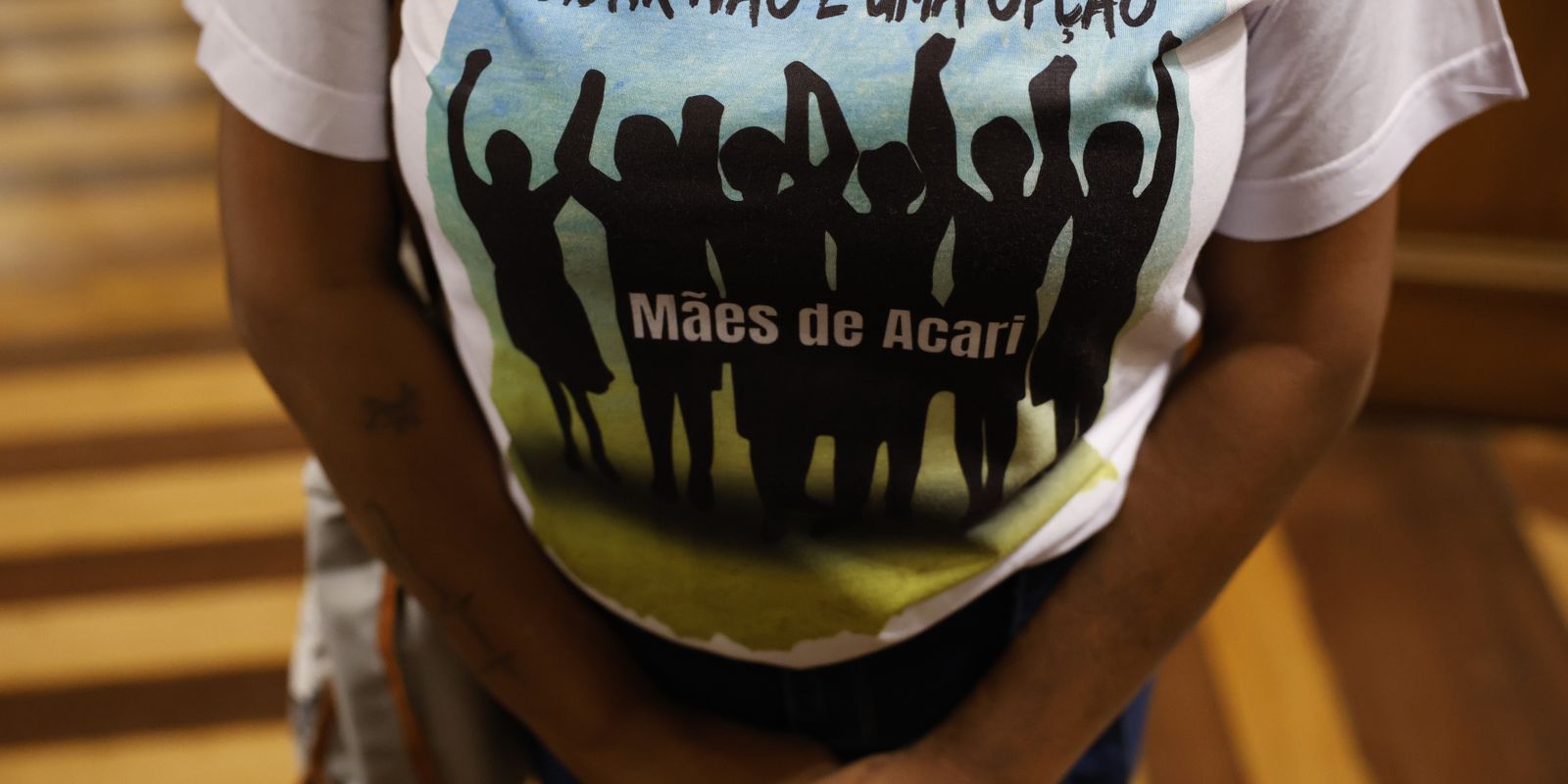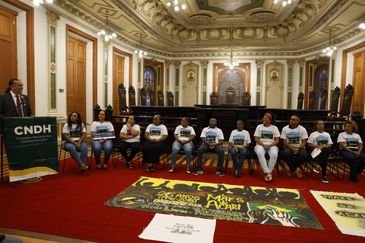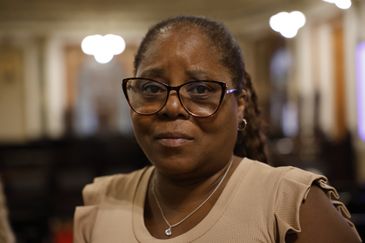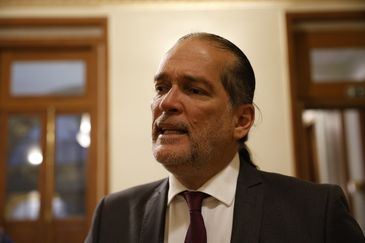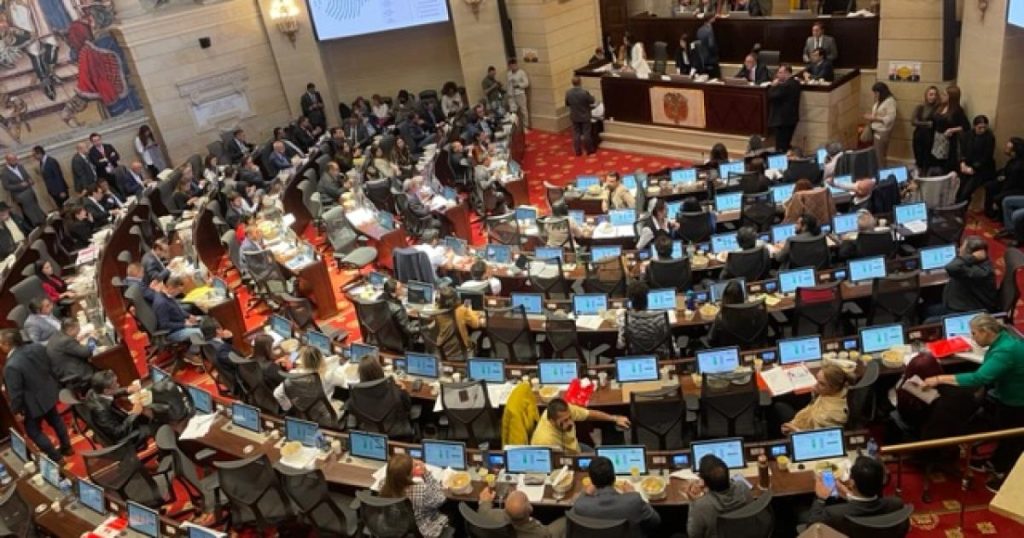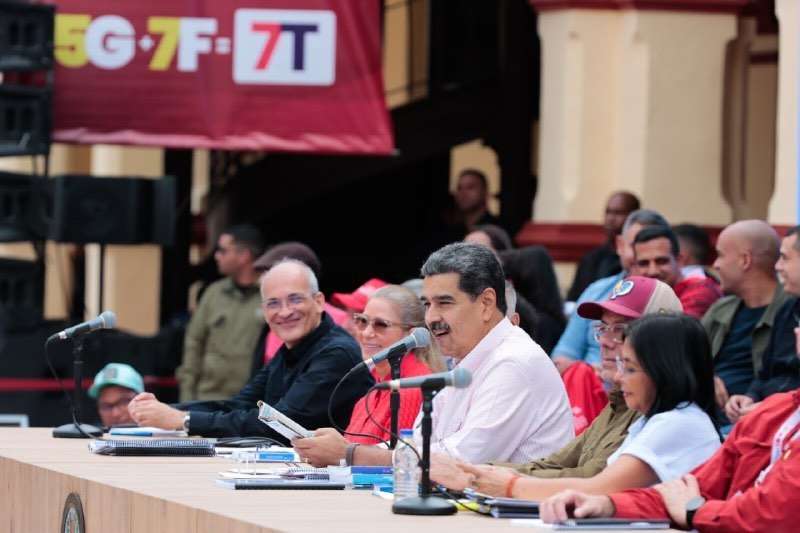In the front rows, family members of the victims of the Acari Massacre remembered the 34 years of struggle for justice. Behind them, empty chairs in what was once the plenary session of the Superior Federal Court (STF), when Rio de Janeiro was the country’s capital. A symbolic image of the decades-long absence of Brazilian institutions in guaranteeing victims’ rights.
Two weeks ago, the Inter-American Court of Human Rights (IDH Court) condemned the Brazilian State for failing to seriously investigate the disappearances of the 11 victims in July 1990. It also recognized the impact on the integrity of family members, especially the “Mothers of Acari ”, who faced different types of violence.
One of them, Edméia da Silva and her niece Sheila da Conceição, were murdered after the former denounced the involvement of military police officers in the crime.
On Tuesday night (17), a public reading of the sentence was held at the place where the Cultural Center of Justice now operates, in the city center.
“I received the decision with great satisfaction, but it took a long time. It’s 34 years. I was left without a mother, without a brother and without a sister-in-law. And for us to win, we had to go to Court, because the Brazilian State did nothing. He always said that he had already archived it, that there was no body, no victim, and that we wouldn’t have the right to anything. It was a huge lack of respect towards family members”, said Rosângela da Silva, daughter of Edméia and sister of Luís Henrique, both murdered.
“A relief. My son was wonderful. He went for a walk in Magé, they happened to get there and take everyone away, saying they were from the police. And no one ever appeared again, dead or alive. I spent decades hoping he would come back and he never did. And the State didn’t do anything for us, it didn’t help us. And time passed. And we finally did it”, said Ana Maria da Silva de Jesus Braga, mother of Antônio Carlos da Silva, one of the victims.
Vanine de Sousa Nascimento’s brother, Wallace de Sousa Nascimento, was 17 years old when he disappeared. The site in Magé, in Baixada Fluminense, where he and the other 10 people were last seen, belongs to Vanine’s family. Despite the trauma, she kept the site intact, hoping it could help with investigations.
“Maintaining the place over all these years was not easy. Because every moment we stepped there, we had to relive everything that happened. For us, it has always been a huge weight. We kept the place even thinking about searches, investigations, at the disposal of the courts”, says Vanine.
The IACHR’s ruling marks a new phase in the family’s life.
“It’s like a watershed moment. As if we had been asleep for 34 years and now we woke up to live a new story. Seeing our own people pass away and not seeing the outcome was very difficult. Seeing our children and grandchildren being born without knowing what happened was very difficult. Recovering our history in this way, with this Court decision, made us very happy”, says Vanine.
Sentence
The IACHR determined that the Brazilian State follows a set of reparations in relation to the case. Among the measures are investigating the forced disappearance of the 11 people, searching for their whereabouts, carrying out a public act of recognition of responsibility, issuing death certificates, creating a space of memory in the region and offering medical and psychological support to the victims’ families.
There is also a demand for financial reparations, with payment of compensation for material and non-material damages, classification of forced disappearance in the Brazilian legal system, and preparation of a study on the activities of militias and extermination groups in Rio de Janeiro.
According to lawyer Carlos Nicodemos, who works in the Legal Project for the Victims of the Acari Massacre and is responsible for their defense, a meeting is scheduled for this week with the ministries of Human Rights and Citizenship and Racial Equality to plan a compliance schedule of the decision. The first item of obligations was fulfilled this Tuesday, with the publication of the sentence in a major circulation newspaper.
“The sentence in the Mães de Acari case, in addition to revealing the issue of structural violence against children, women, black people, who live in favelas and communities, and the problem of public security, opens a window of opportunities for the Brazilian State to operate a series of actions to prevent this type of crime from being repeated,” said the lawyer.
“We have a normative abyss in Brazil in relation to forced disappearances, due to the lack of a classification of the crime. There has been a bill since 2011 that has not advanced. The Brazilian State needs to recognize the international treaty on this topic, which points to a monitoring and control mechanism”.
For Lúcia Xavier, founder of the NGO Criola, the expectation is that the Inter-American Court’s ruling will help support other actions and judicial decisions in favor of victims of forced disappearances in the country.
“For us, who work in the field of human rights, especially in combating racism and violence against young people, it is a very great possibility of having policies on disappearances, investigations and more coordination between public services in favor of these people”, he said Lucia.
“What we hope is that this sentence will be as fundamental as Maria da Penha’s, in relation to violence against women, and that an entire framework will be built for the Brazilian State to act in defense of this population.”
